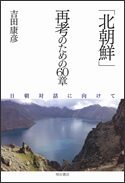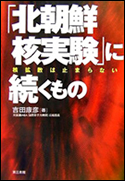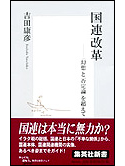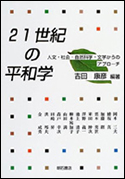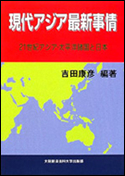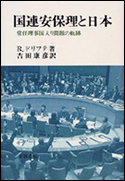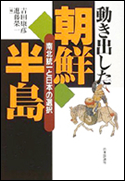2006年10月25日
【11】Economic relations between China and the DPRK(Independent Report completed on 25 Oct. 2006)
(1) China is the biggest supporter to the DPRK in terms of trade and investment. Both-way trade between the two countries in 2005 amounted one-billion 580-million US dollars in value, recording a 14-percent increase over the previous year. A sharp upward trend has continued for the past several years, also this year, despite the missile tests in July. The China-DPRK trade accounts for 40 percent of North Korea's overall trade value, followed by the inter-Korean trade between the North and South, which amounts to one-billion dollars. On the other hand, the Japan-DPRK trade, one-time on a top rank, has sharply declined to a 100-million-dollar level, reflecting the deteriorating bilateral relations over the abduction issue.
(2) Table below shows the import-export figures between China and the DPRK;
China's exports China's imports Total value
2000 450,840 37,210 488,050
2001 570,660 168,800 737,460
2002 467,310 270,860 738,170
2003 627,580 395,350 1,022,930
2004 799,500 585,660 1,385,160
(Source: Official Chinese duty statistics/ unit:1,000 dollars)
During his state visit to the DPRK in October 2005, China's Head of State, Hu Jintao, emphasized on the need of a joint national development through expansion of trade and investment. He announced that China would extend a total of one-billion US dollars in the financial assistance in the coming five- year period as fund for various development projects. This indicates that it is the Chinese Government's policy to embrace the sluggish North Korean economy within its own economy, and direct it for overall reform and modernization in their common interest. China's share in the DPRK's overall foreign investment is estimated at 85 percent in 2005, with a record figure of 50-million dollars as a single annual period.
(3) China is obviously in a dilemma, sandwiched between the United States and the DPRK. In the wake of the DPRK's underground nuclear test on 9 October, China voted for a US-initiated draft resolution 1718 in the UN Security Council invoking non-military sanctions under the Chapter 7 of the UN Charter. It was unanimously adopted in the Security Council on 14 October. In an apparent gesture to implement the resolution, the Chinese authorities have ordered a North Korean freighter anchoring at the Hong Kong port since 22 October, not to leave the port until final security and procedural clearances are completed.
Nevertheless, China has made it clear that it would not undertake the cargo inspection as authorized under the UN resolution. The resolution inserted in the text upon the request of Beijing the phrase; "the Member States could make the inspection of cargo when deemed necessary." The Chinese Government also instructed four major national Chinese banks to freeze North Korea-related accounts, thus paralyzing remittance or cashing on behalf of North Korean officials and businessmen. However, these are a gesture by the Chinese authorities to impress the international community that Beijing is cooperating in the implementation of the UN resolution. Basically, the Chinese would do nothing disadvantageous against their benefits. Pragmatism is a basic Chinese behavior.
(4) Since its debut in 2001, the Bush Administration has publicly been attempting to topple the Kim Jong Il regime, preferably by peaceful means, but if necessary by coercive means, because it is a dictatorial, inhumane and dangerous regime. President Bush has no intention to directly deal with Pyongyang which is desperately determined to achieve its goal of political survival. In this sense, financial sanctions have been found quite effective. The officials in Washington are confident that this could eventually lead to collapse of the Kim Jong Il dynasty. The Chinese authorities, on the other hand, want avoiding any political and social confusion in North Korea as a result of the collapse of the Pyongyang regime. Therefore, Washington and Beijing apparently have a difference dream in the same bed. They are not necessarily united in sharing a common strategy to topple and replace the Kim Jong Il regime.
(5) Not to mention the increasing bilateral trade, China has invested a total of one billion dollars on development of rare-metals and other mineral ore resources in the Northeastern provinces of the DPRK, which has authorized the three local Chinese business concerns to engage in the development work for the next 50 years. The Musam (茂山) iron ore resources on the Chinese-Korean border is the largest in Northeast Asia, with total estimated deposits of three-billion tons. These North Korean mineral resources are an essential asset for overall development projects in Northeastern part of China. The annual output of such minerals exported from the DPRK to China is estimated at 10-million dollars, making a long queue of a full load of Chinese vans shuttling between the border every day.
Any social confusion in North Korea would bring a negative impact on economic development in Northeastern China, which lags behind, as compared with other districts. A Mainichi Shimbun report from the border area on 24 October says that no visible effects have apparently been witnessed since the DPRK's nuclear test on 9 October. No cargo inspection has been conducted by the customs officials on the border, the report adds.
(6) According to a local Chinese newspaper, a group of Chinese business concerns have concluded a 50-year contract with the right to develop and manage all the port facilities in the Razin and Sombon area on the Chinese-Korean border in exchange for modernizing a network of roads surrounding the area. The work has been underway smoothly. Another Chinese group plans to establish a long-distance national bus transportation network with Pyongyang, the capital, as its center, stretching to major local cities and towns across the country. Another Chinese enterprise in Tienchin near Beijing has constructed the first bicycle-manufacturing plant in North Korea near the border.・・・・・・These are some of the examples of China's economic infiltrations into the DPRK. It would not be wrong to conclude that the whole of North Korea now constitutes the fourth province (Chosun Province) of Northeast China. Economically, China and North Korea are closely inter-dependent.
(7) Another reason for the Chinese to avoid confusion on the Korean Peninsula is the fact that there live an estimated 2-million Korean tribes inside China along the Chinese-Korean border. Once millions of Korean residents making an exodus as refugees into China crossing the border, only across a river, the whole area becomes unstable in political, economic and social aspects. The Korean tribe might constitute a big minority race in the Chinese society in the wake of collapse of the Kim Jong Il regime. There is one more political reason for China anxious to maintain stability on the Korean Peninsula, with both the ROK and the DPRK co-existing peacefully as two divided states. The Chinese authorities do not wish to witness the American forces advancing north to the Chinese-Korean border, in the aftermath of collapse of the Kim Jong Il regime. At present, 37-thousand US soldiers are stationed in the South as deterrent to possible aggression from the North.
(8) It has become clear that China's influence on the DPRK in softening or modifying its policy of confrontation with the United States is quite limited. Even Mr.TANG Jiaxuan, the N0.2 figure in China's foreign policy affairs, during his recent visit to Pyongyang, failed to dissuade Mr. Kim Jong Il from conducting another nuclear test and returning to the six-party talks in Beijing unconditionally. With nuclear warheads on his right hand and missiles on his left, Mr. Kim Jong Il would never yield to any outside pressure until he believes he has achieved his political ambitions, namely until Washington agrees to recognize his regime as a legitimate government as well as the ROK in Seoul, establish diplomatic relations and remove all economic and financial sanctions. He now places a high expectation on the outcome of the mid-term legislative elections in the United States on 7 November, as the opposition Democrats, criticizing President Bush's DPRK-isolating policy as fruitless and perilous, have been raising their voice for direct negotiations with Pyongyang.
(9) The DPRK could not survive for more than a week, provided Beijing suspend oil supplies through a pipeline crossing the border. It is highly unlikely. China provides nearly 90 percent of North Korea's energy consumption.



